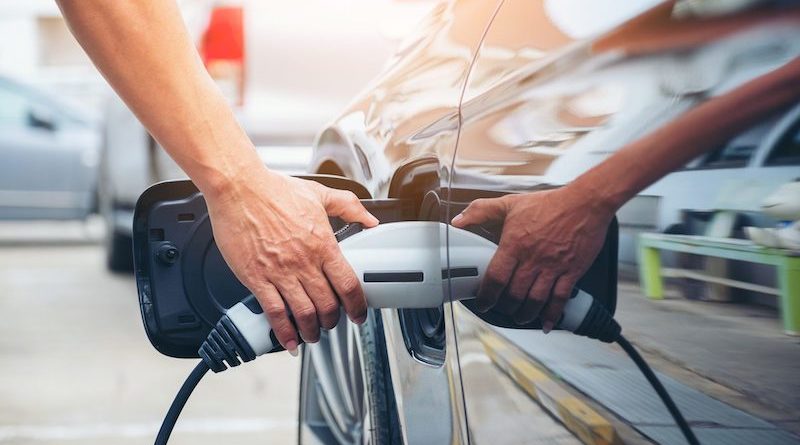
Caution: Ending fossil addiction will benefit us all
Our society is addicted. Our whole system is dependent on burning fossil fuels, mostly stemming from outside Europe. Putin’s war in Ukraine exposed the geopolitical path dependencies that such a system can have. The suffering of the Ukrainian people teaches us: Climate policy is security policy and vice versa.
We Europeans realized that we need to renew our fuel infrastructure quickly, but we must not replace fossil path dependencies on Russia with new ones. Europe must expand its own fuel infrastructure and it must put us on the right track towards climate neutrality. Only then can we end our fossil addiction.
I consider three steps to be crucial for quitting. We must provide the infrastructure for the mobility of the future first. This process has to be accompanied by suitable policymaking to cope with the adequate speed the climate crisis sets for us. Those efforts are going to be useless however, if the European Union does not manage to push the energy transition, the overarching prerequisite to develop a fuel infrastructure that is self-sustaining, independent and climate neutral.
E-mobility has been agreed to be the technology of the future when it comes to decarbonizing road transport. Effective climate policy and decreasing fuel dependency must begin here as the sector accounted for over 25% of all European CO2 emissions in 2018.
To enable a smooth transition, a standardized charging infrastructure for electric vehicles presents the essential first step.
Within the Industry Committee I negotiated for a Europe-wide supply of e-charging stations by 2025, 5 years prior to the Commission’s initial proposal. This network will be built within the next 3 years and cross a crucial checkpoint to achieve climate neutral mobility. Charging plug-ins for the vehicles are going to be standardized while refueling will be possible by cashless payment without a myriad of apps per provider. Transparent pricing policy will be mandatory for operators and will make consumer payments for recharging as easy as possible. In the end, this will not only be an advantage for consumers, but also for the manufacturers. In addition to standardized charging stations and systems for electric vehicles, producers can now also look forward to a stable pricing policy. That way, we have taken an important first step and are rapidly creating the infrastructure necessary for climate neutral mobility of the future.
The climate crisis urges us to act with extreme haste. Summer has not even started and the first heat wave with drinking water rationing, crop failures and energy problems has already hit us. There are only a few years left until we exceed the CO2 budget set by the Paris climate goals. This calls for change. A second step thus involves setting economic and political guidelines to accelerate the change necessary to become climate neutral. Some car manufacturers have already arrived where we have finally decided to go politically: The official date for the end of the combustion engine in 2035. This decision was important because it sets a clear mark: in just over 10 years, no car with a combustion engine will roll off the production line in the future.
By incentivizing and setting clear-cut targets, we can create planning security for industry and citizens while ensuring to stay within the time frame the climate crisis sets for us. But where does the green energy comes from?
The green energy transition lies at the core of all this in a third and most essential step. We must boost renewable energy generation on the one hand, but also create an extensive and resilient European energy grid that can provide the electricity needed to meet peak loads and store electricity in times of overproduction. Solar and wind generation are the energy systems that will fuel the new infrastructure. Building a European super grid is going to be essential to harness the power of renewables. The Commission proposal called REPowerEU goes in the right direction here. A European solar obligation, a rebuilding of the European solar industry, higher targets for renewables till 2030. This is necessary, but must not be paid for by climate pollution. If we really want to become energy independent and offer Europe’s charging infrastructure with 100% green electricity in the future, we need fresh money – a European energy independence fund. The energy transition does not come for free.
Developing an alternative fuel infrastructure for Europe bears enormous benefits for the continent, its people and nature. Synergies will arise and can be used as the electric mobility transition and the development of a European electricity grid go hand in hand.
We must strengthen key domestic industries and therefore save and create millions of jobs in renewables within Europe.
The cessation of European use of oil, coal and gas will ultimately benefit everyone and will decrease our dependence on autocrats and war mongers. Since the beginning of the war, our fossil fuel dependency has flushed over 60 billion Euros into Putin’s war chest. More sun and more wind thus ultimately imply more peace. Quit fossil fuels now, means benefits for all in future.




